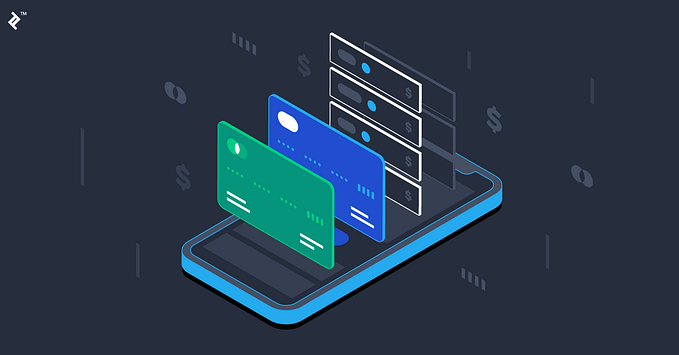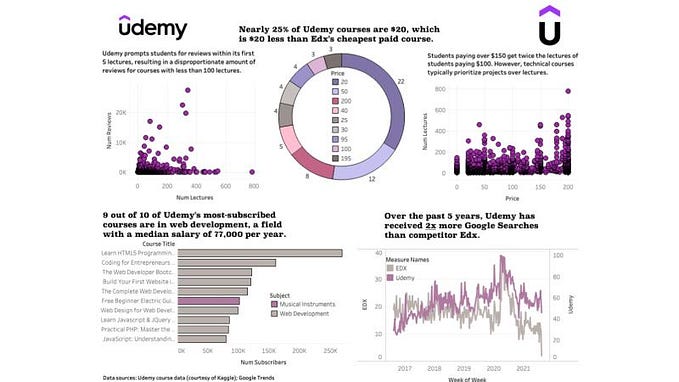Top 5 takeaways from my virtual internship as a product consultant with Tableau
My best decision for 2020

From June 2020 to Dec 2020, I had the opportunity to embark on an Internship with Tableau as a solutions engineer. At first, I was concerned when the internship had to be converted into a virtual one, given that I am delaying my graduation. What reaffirmed my choice at the start of the internship was the remote working experience, which will eventually prove valuable when dealing with overseas clients/customers.
Thankfully after these 6 months, I can confidently say it was the best decision I made for the year 2020 as it places me in an environment to grow as an individual. The overall experience was challenging, rewarding, and most importantly, enjoyable.
Within the internship time frame, I had the opportunity to be exposed to a wide variety of engagements from outreach, customer demo, doctor sessions, project management to on-site guided evaluations.
Achievements which I am proud of:
a) Working with 17 companies from different industries.
b) Closing 6 opportunities as the Primary Consultant, generating USD 135,938 in sales for the company and 4 other opportunities as the Secondary Consultant.
c) Top 5 (in no particular order) in an internal demo competition with Einstein Analytics and Tableau.
4) 6 engagement sessions (2 of them having 100+ people in the audience)
5)Completing the Tableau Server Certified Associate.

6) Participating in Tableau Live Asia Pacific & Tableau Live Conference as a Tableau Doctor.
5 Biggest Takeaways
- Communication is key
Being an Introvert, I am naturally passive in my communications. I do not see the need to document or communicate my progress with my managers or senior solution engineers. Quoting my direct manager, “ progression comes in two forms: you do what you do better or take on more responsibilities.” Thinking back, instead of having just technical conversations surrounding the product, I should have more conversations with my direct manager on other skillsets that can be monitored by him and share more about my day to day activities to get constructive feedback.
Being proactive in the communication channel is important as well to get the trust of clients. After all, the software is usually a means to an end. What I’ve learned in how customers adopt the software comes down to the extent which he/she is being influenced in terms of mindset or lifestyle.
I was tasked to oversee a one-week guided evaluation where the customer has to decide whether to adopt Tableau over another BI tool within two weeks. Throughout the two weeks, we were actively engaging the customer in various ways besides the assigned presentation slots (where we demonstrate the product to a wider audience) given to us.
Emails to customers:
“Hi XXX, I’ve understood that you will have a monthly debrief with the sales Team this Friday. Tableau will be great in aiding that discussion, and my team and I will be glad to guide you through the interaction with the dashboard.
Regards,
Yolo”
“Hi XXX, thank you for the question raised during our demonstration. As the operations executive, you are dealing with a massive amount of data relating to the different SKUs. What are the pain points you usually faced?
Best regards,
Yolo”
These are examples of emails that sparked conversations that gave us additional touchpoints with the end-users.
These touchpoints can be in the form of an engagement or troubleshooting session, which allowed us to deliver value and solve pain points.
2. Ask
Before the internship, I’ve always admired guest speakers who have all sorts of answers to questions from the audience. During demonstrations and engagement, I will receive questions from the audience, which are usually technical in nature. E.g., Can Tableau do XXX? How many rows of data can an extract hold? How do we set permissions?. I will be excited to answer them at first glance during Q & A if I know the answer.
Instead of diving straight into answering the question, it is crucial to slow down and think about how this will eventually contribute to the bigger picture. If you are unsure of it, always ASK. This allows the customer to share their concerns/problems, which is crucial for any engagement.

3. Clarity
This is an email that I’ve drafted to the analytics manager of a client.
“Hi YYY,
Ever since our call last week, XXX and I have been working on deploying the dashboards and making sure that they are constantly updated with the most recent data. We are excited to show you our progress, and I would like to arrange some time with you today at your convenience before the meeting tomorrow to showcase how these dashboards can value-add to the conversation.
Best regards,
Yolo”
Observe any errors?
a) We must all take note that clients will read emails with a mindset of “What is in it for me?”. The draft above was more like an update of my work with person XXX. Person YYY doesn't need to know about the specifics, and I should write to understand the reader’s intention.
b) Short sentences instead of paragraphs encourages people to read
c) Start with the ASK (Action required from the customer). Do not let it get mixed up in the middle.
Here is an improved version :
“Hi YYY,
Would you like to use the interactive dashboard for the meeting tomorrow?
If so, I can get on a short call today to guide you through it.
The dashboard is currently updated, thanks to our collaboration with XXX.
Best regards,
Yolo”
Way better, isn't it?
4. Learning to say “No.”
I was a classic perfectionist, people pleaser, and I suffered from FOMO (Fear of missing out). It means the world to me when clients and customers validate my work. I was happy to help by contributing my time, services, knowledge to solve all sorts of problems. I would dive straight in at any engagement available without evaluating the commitment level so that I won’t miss out on any learning opportunity, resulting in back to back meetings throughout the week.
This has resulted in a loss of focus and unproductive days. As a product consultant, time management is key as you balance customer engagements and free time. Do not get confused, customer engagement is still essential as it will help you understand their pain points, develop soft skills, and work with people from all sorts of industries and backgrounds.
However, do ensure that you have dedicated free time for yourself throughout the week. I find myself being more productive after setting aside time blocks for myself at the start of the week.
My free time will be spent on the following items:
a) Reading on product improvements and industry news
b) Self-reflection
c) Goal setting
d) Admin
e) Planning for the week ahead
f) Studying for certifications
After my free time, I am always more focused, and I will usually have new knowledge/ideas in the midst of self-discovery, which I can value add to my clients.
5. Practice makes perfect
Ending my biggest takeaway with this.
My Monday Makeovers and presentation opportunities as a Tableau ambassador before the internship have benefited me in many ways. I found myself thriving and excelling in time-sensitive situations where I have to construct a dashboard or deliver a presentation within the next 30 minutes or an hour.
Regardless of my familiarity with the product or client, I always find opportunities to practice with sales reps, fellow product consultants, a subject expert, or myself before a product demonstration. This is with the belief that there is always room for improvement. It is tough to gather multiple stakeholders within a single room and get their attention. We should do our due diligence as consultants to deliver the best we can in any situation. Practice makes perfect.









